Food and the Migrant Diaspora
Soong Li-Shya
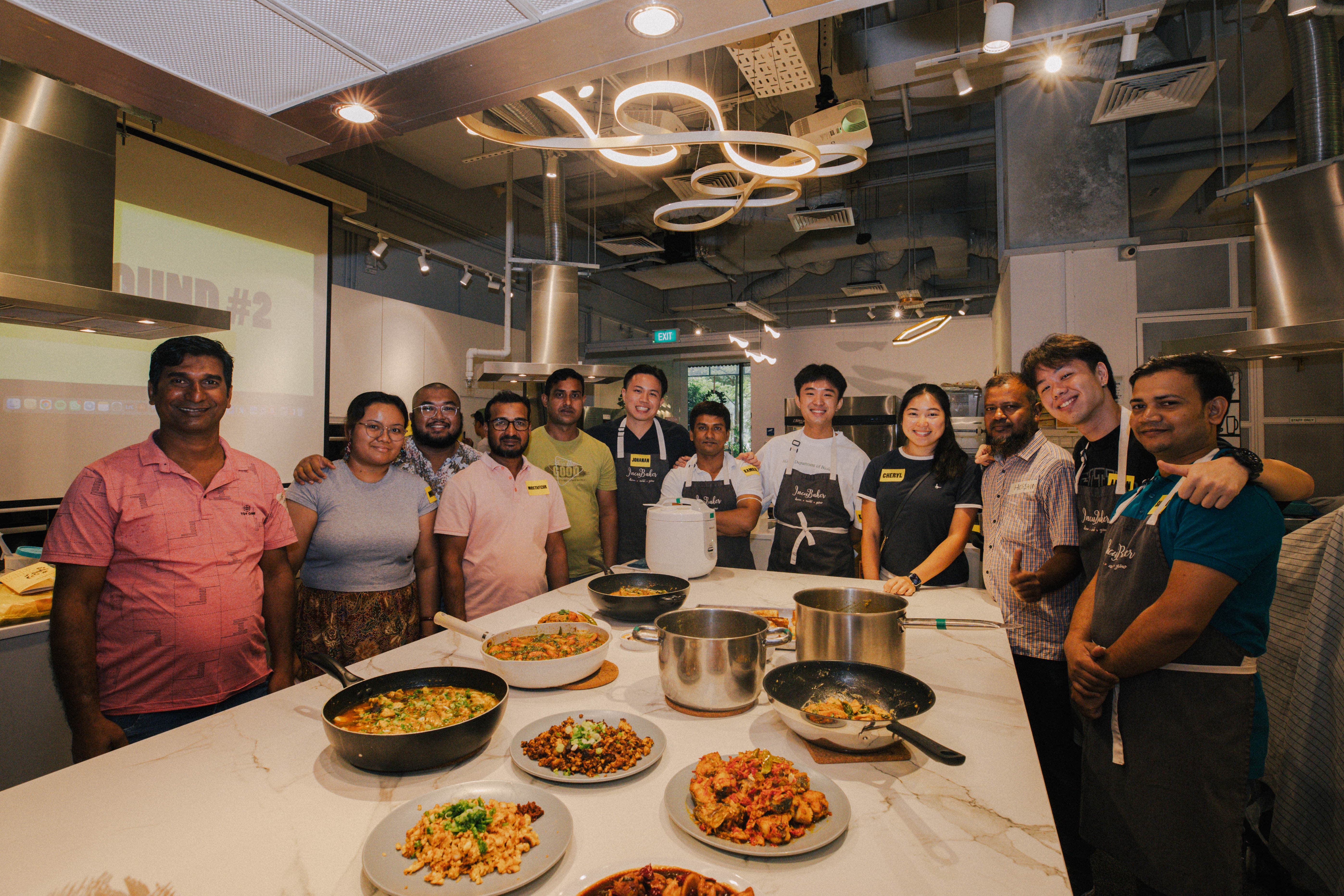
Often, our perception of migrant workers is limited to their identities as labourers,
resulting in minimal interaction due to entrenched stereotypes. In the spirit of doing away with
such stereotypes, Food and the Migrant Diaspora delves into the cultural
identities of
migrant workers through the lens of food and transnationalism.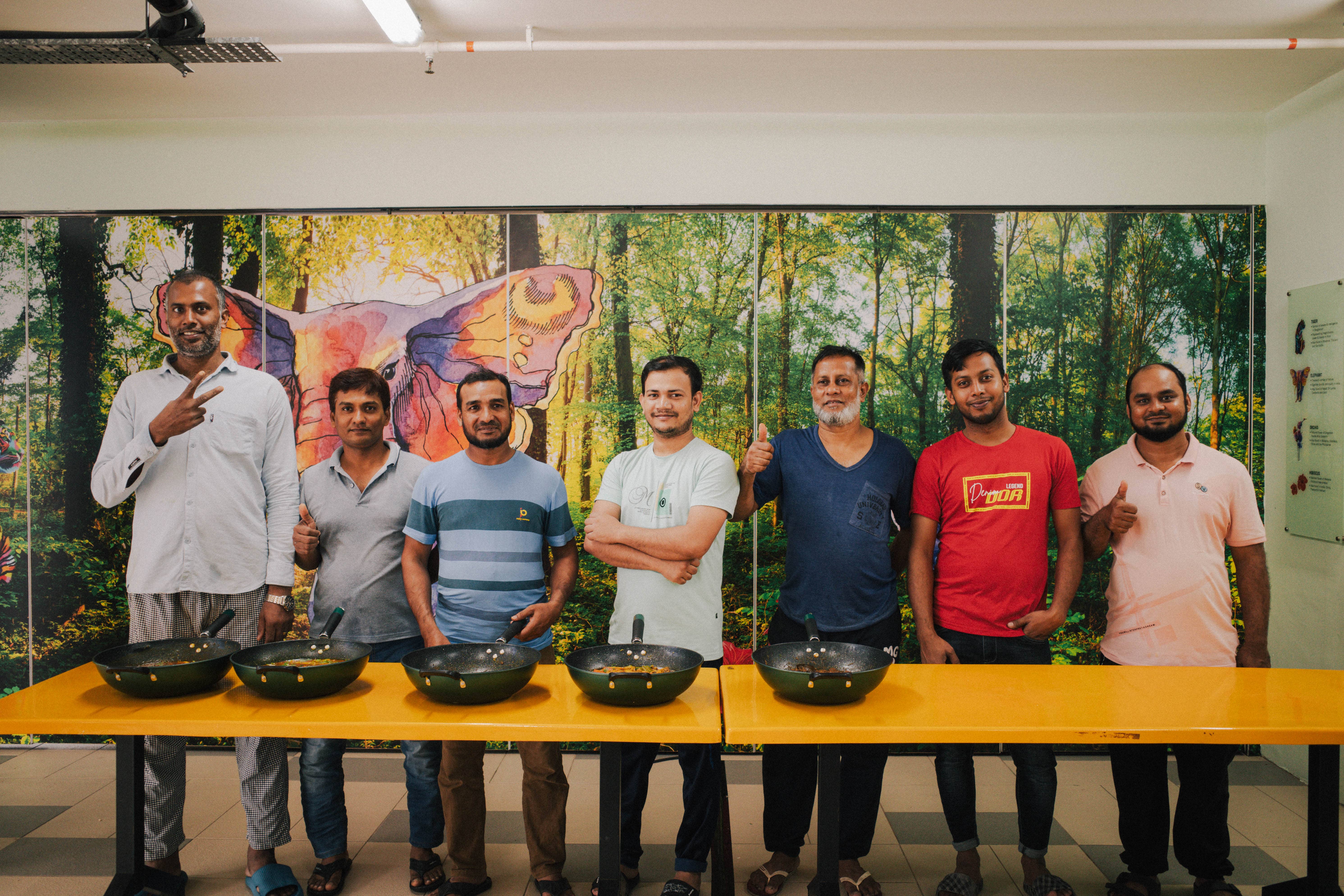 While navigating through the sensitivities that come with altering perceptions, Lishya believes in
starting small — food as a mediator between Singaporeans and the
Bangladeshi Migrant Community.
While navigating through the sensitivities that come with altering perceptions, Lishya believes in
starting small — food as a mediator between Singaporeans and the
Bangladeshi Migrant Community.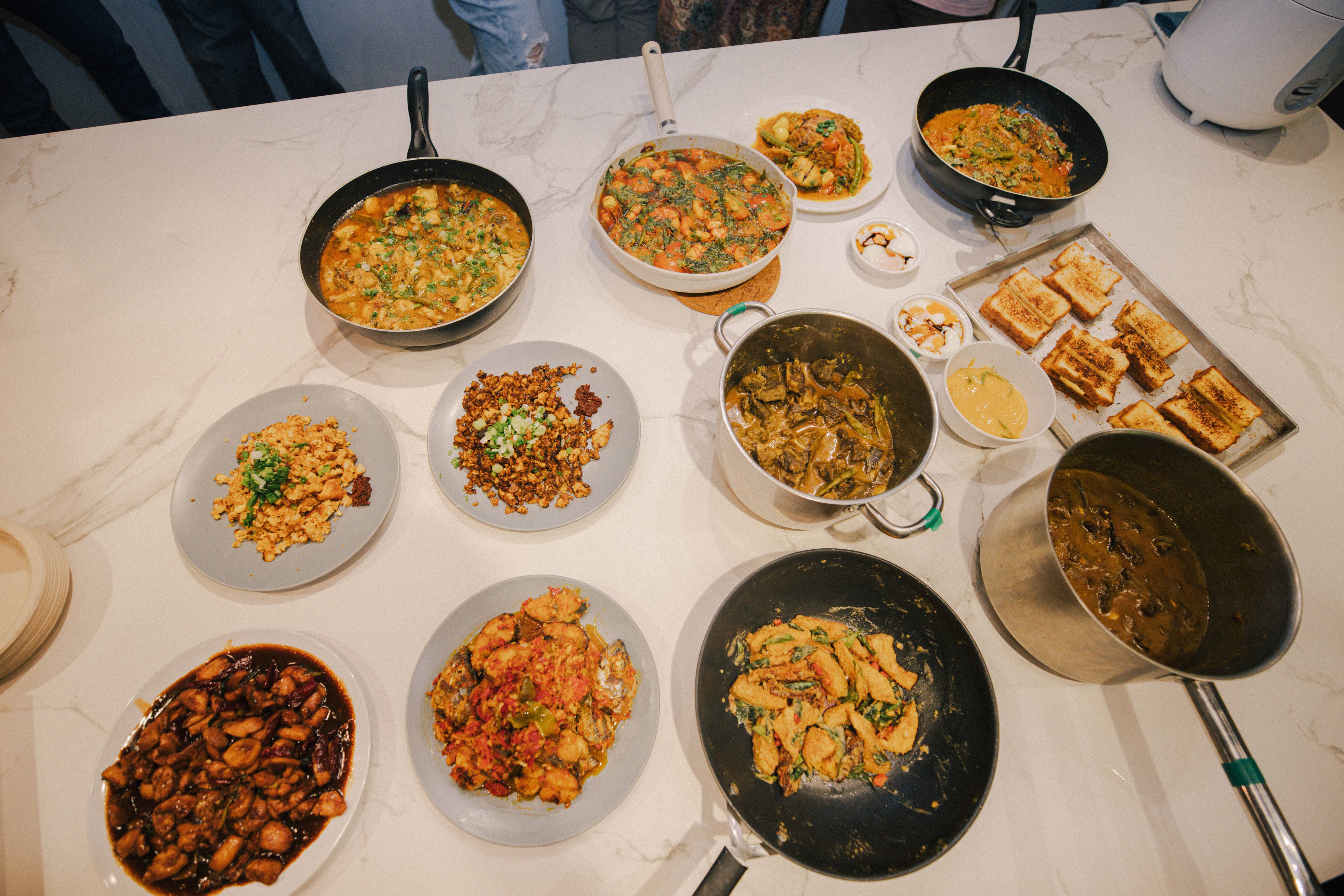
Could you share some insights into why you thought food could be the mediator between the two communities?
There are many ways to talk about migrant worker issues and a lot of them are quite political and involve a lot of policies. Certain things are also quite hard to address in a way that's more digestible, appropriate and sensitive. So when I was thinking about culture, culture relates to a lot of things like language, food, or whatever it is. But I chose food because I like food. Everybody likes food. Singaporeans like food. And it's something that's very harmless.
My initial plan was to use transnationalism because it's a framework on how you can view migrants and how when they move to different countries, they assimilate into the spaces. In terms of cooking, I think one of the ways they assimilate is maybe by substituting an ingredient they usually use but can’t find so that it still tastes like something that's homely to them. But I realised in Singapore that a lot of the ingredients that they use are very accessible, and there are even shops dedicated to them. In Little India, there are shops that are more catered to Indian workers, and maybe nearer the Mustafa area, it's more catered to Bangladeshi workers. So in that sense, even though people say that Singaporeans or the Singaporean government don’t treat them well in terms of policies, I still think in some ways, it allows them to stay connected to their culture.
Do you have any opinions about current initiatives? And how do you wish to direct your project with that in mind?
I was blessed enough to be able to interview this initiative called Project
Julia Street
. Their initiatives are quite food-centric and they do things like fiestas where
they invite migrant workers and give food to them. During their first fiesta, they gave out fish head curry.
For a normal Singaporean, you'd be like, oh yeah, because they eat curry, then
you give them curry. But actually, when they asked around, they realised that it's not
suited to their taste, even though it's curry. After that initiative, they pivoted how they did
their subsequent fiestas. Instead of just giving food, they also provided ingredients because they
realised that they like to cook.
Talking to different NGOs was also a bit hard because when you approach them as a student, they think that it's like those one time events. I would say it's also an insight on how students can come approach them for initiatives. They can consider if there's longevity to what they do, so it's not just a follow up thing.
When I was documenting the recipes for Singaporeans, I asked them to send me
their recipes.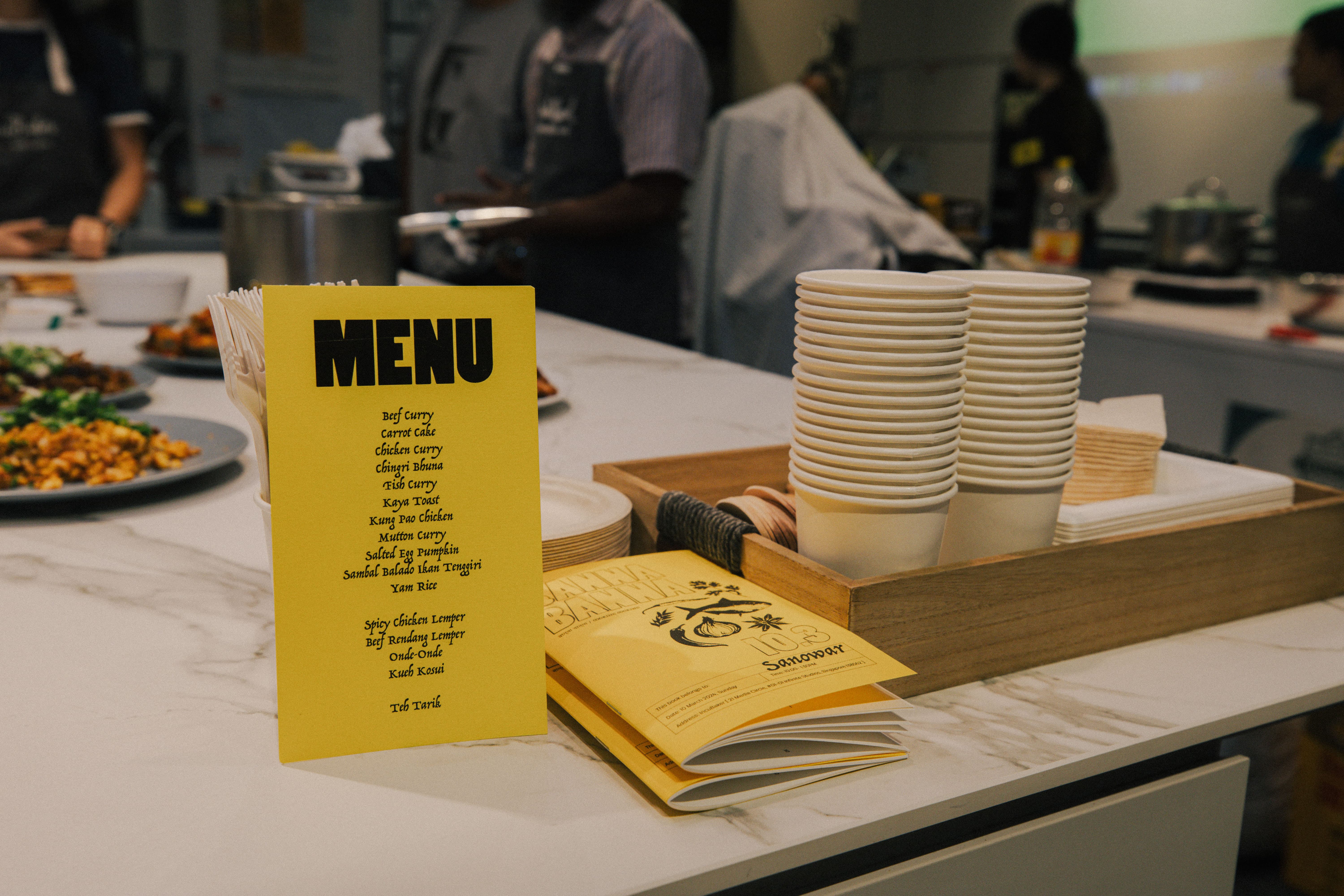 For the migrant workers, I
went down to their dorm with one of my friends who was also a participant during the event. I could
see how just over two weekends, they were able to get to know one another.
For the migrant workers, I
went down to their dorm with one of my friends who was also a participant during the event. I could
see how just over two weekends, they were able to get to know one another.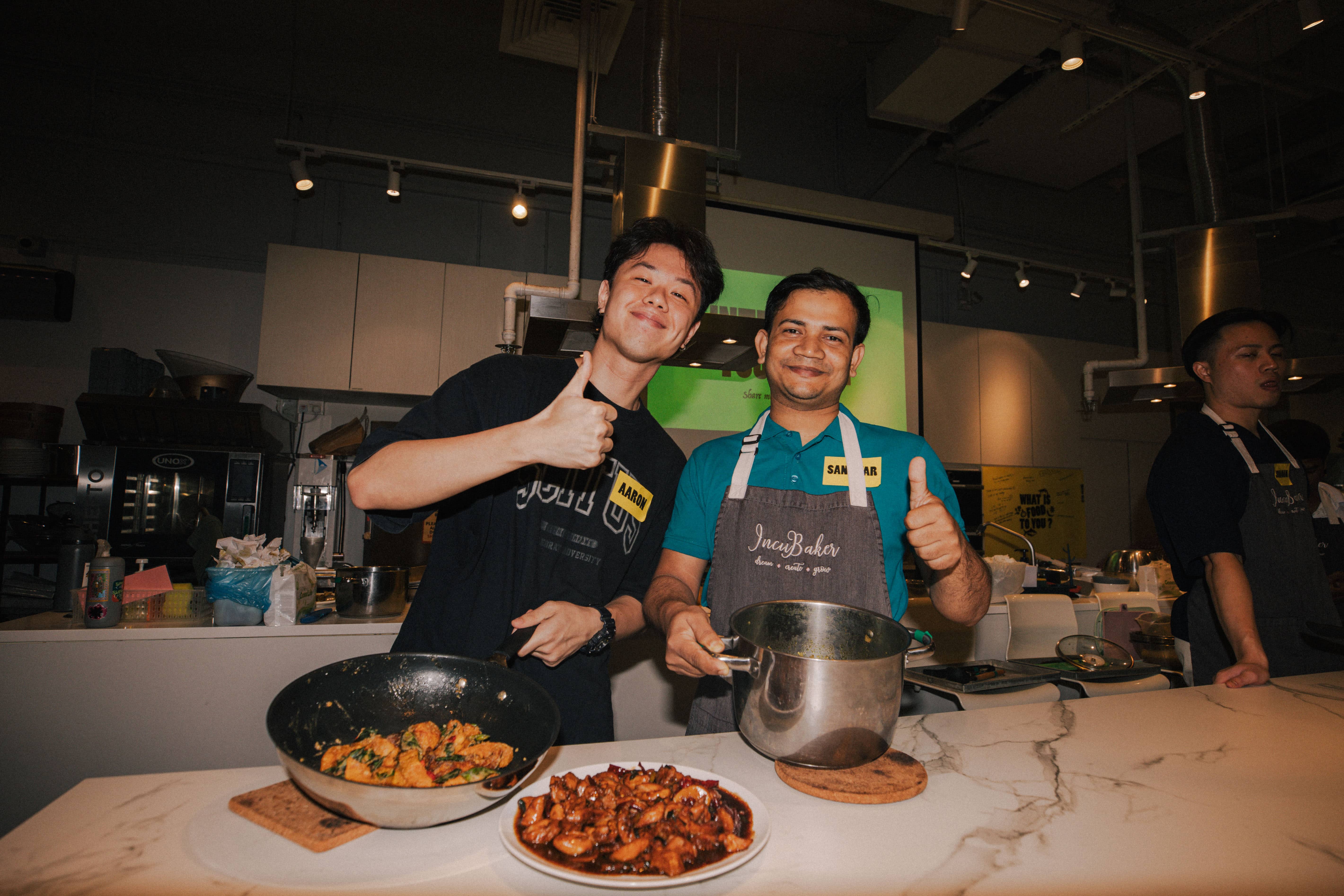 And
they were already quite comfortable talking about things. It's just simple things like having a repeated
event with the same
people. It’s simple but if you actually put it into action, I
think
that it can create a lot of impact. So even simple things like having facilitators to help out;
they can help participants and guide the conversation.
And
they were already quite comfortable talking about things. It's just simple things like having a repeated
event with the same
people. It’s simple but if you actually put it into action, I
think
that it can create a lot of impact. So even simple things like having facilitators to help out;
they can help participants and guide the conversation.
I think you talked a little bit about the experiences of the migrant workers from this event. How about your volunteers and your Singaporean participants?
I did get them to send me a few reflections on how they felt after the event. For a lot of them, it's probably their first time interacting with migrant workers. I would say most of them were very open because if you like cooking, then you learn about other people's recipes. So you'll be genuinely quite interested in culture, and how we are different but also similar to them.
Yeah, I think one example is Kai Jie. He genuinely shared his experience, which I think was good. The project is for him. And I think he was quite intentional during the event and made a lot of conversation with the migrant worker. And can really see the questions he asked were more than just, oh, what do you do? He even asked Rahman, the person who he was partnered with, what do you study? So I think Kai Jie realised that some of them also are educated. It's just because they want to help their family break out of poverty, they decide to take odd jobs in Singapore.
How did the event go?
These were the recipes that they documented.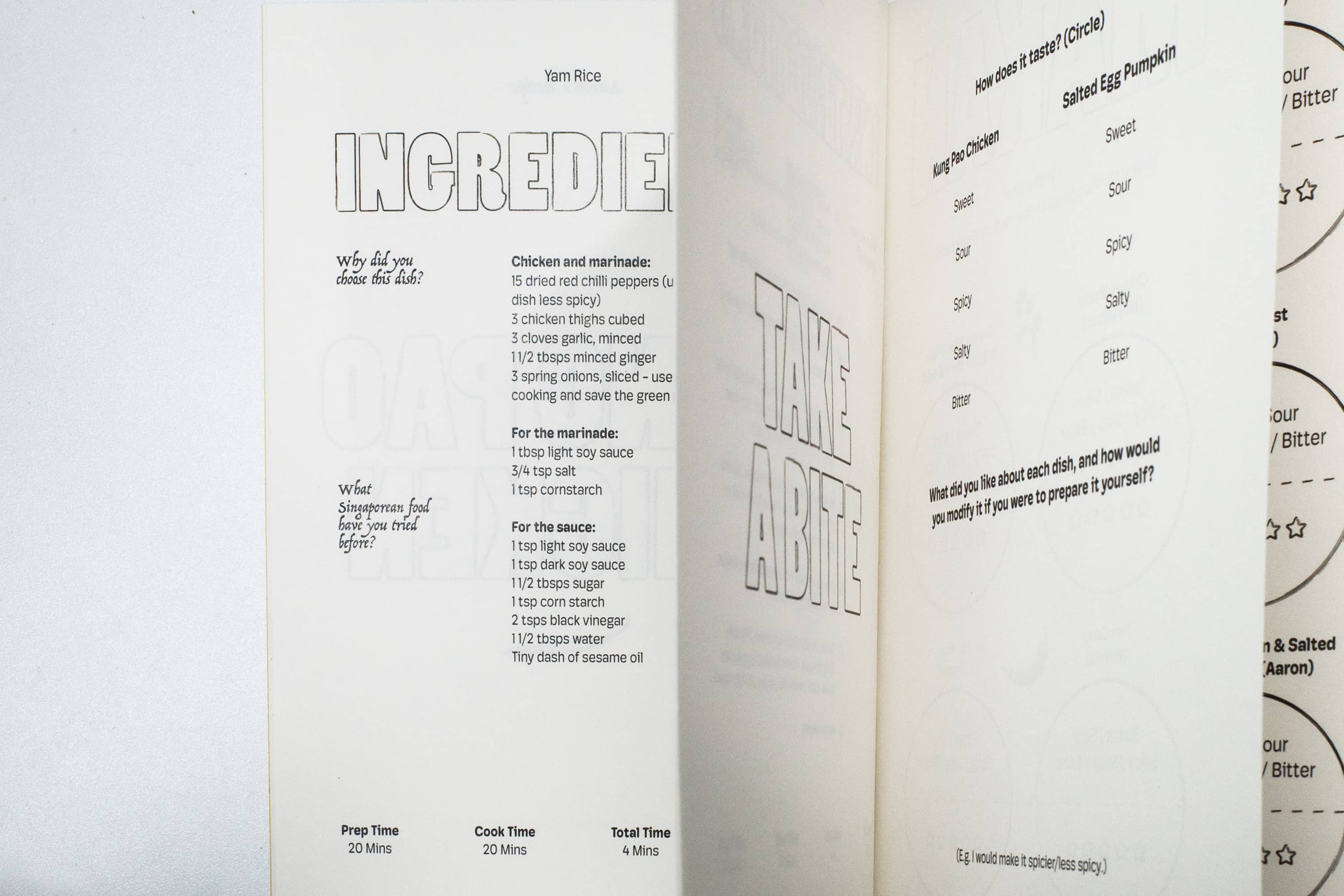 Some
of them used their phones but I just gave the book for them to write if it's easier. All this is
agar-ation technically. I did bring me the measurement things, but in the end a lot is by feel. The
purpose of the book is to kind of serve as a memento,
Some
of them used their phones but I just gave the book for them to write if it's easier. All this is
agar-ation technically. I did bring me the measurement things, but in the end a lot is by feel. The
purpose of the book is to kind of serve as a memento,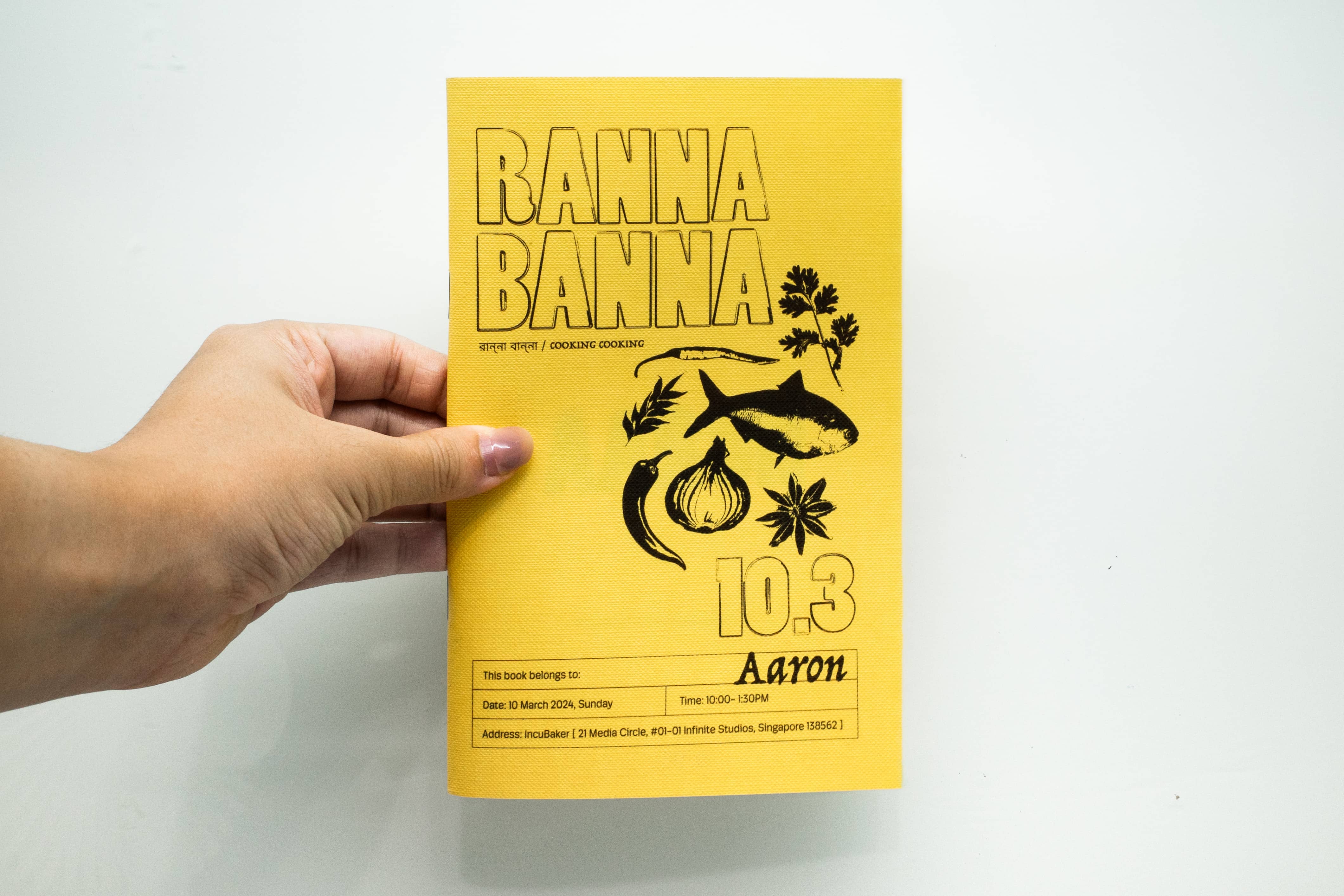 and also something that
can help them reflect a bit more.
and also something that
can help them reflect a bit more.
At the end of each round that they cook,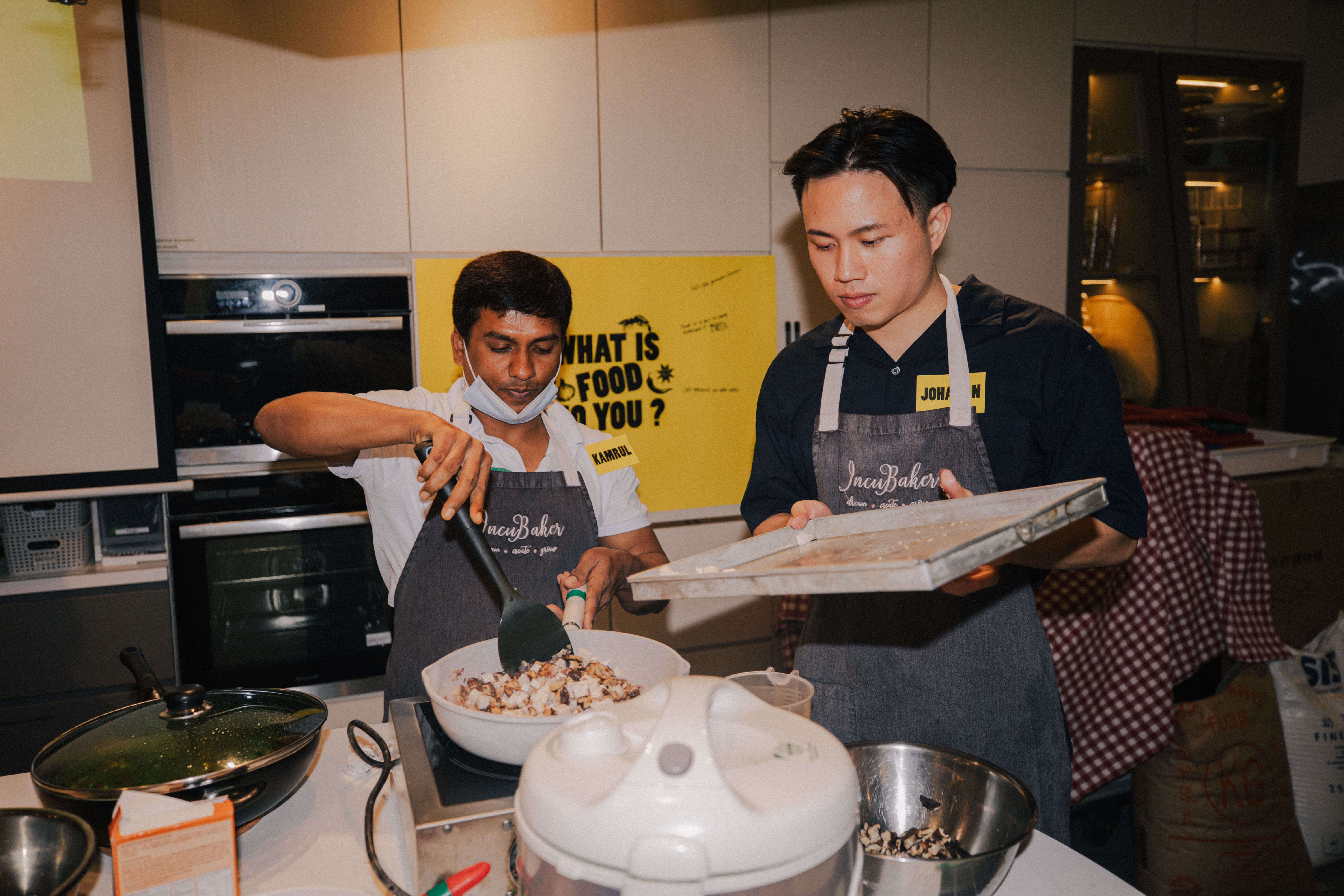 we have these questions of
what they would do if they were to prepare it themselves. And then there's also conversation prompts
for them, which didn't really work because during cooking, they didn't really refer to the book.
we have these questions of
what they would do if they were to prepare it themselves. And then there's also conversation prompts
for them, which didn't really work because during cooking, they didn't really refer to the book.
See more than just chicken rice